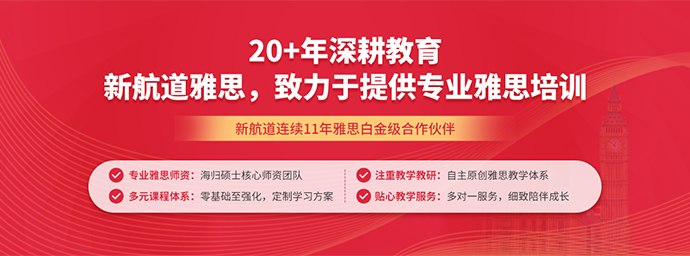
雅思口语一直都是中国考生最头疼,今天雅思培训学校 小编为考生们带来了雅思口语part1:Politeness,但需要考生将常见话题进行灵活应答,考取理想分数。
1.What is politeness in your opinion?
Mmmm… for me politeness is treating other people like you would want to be treated, and remembering to say please and thank you, that was something my grandmother always reminded me about.
2.When you were child who taught you to be polite?
My parents, and especially my grandmother, she was always telling me to say please when I asked for something and to remember to say thank you when somebody gave me something or did something for me.
3.Why is it important to be polite to people?
It’s one of those things that just makes life nicer, isn’t it? When people are polite, or courteous, it’s just nicer than if they’re not. It makes everyday activities better… if people weren’t polite then maybe we wouldn’t speak to so many different people every day or help people… or ask for help either.
4.Do you think people became more or less polite in your country compared to when you were a child?
I believe, people have become more of open minded, less formal and more bold in making statements. So, they tend to just say as it is. But, this does not necessarily mean that they don’t respect their parents or elders. I think the problem is that people are not able to express what they feel in a better way.
5. In your country’s culture, how do you show that you are being polite?
To start with, a simple but convincing indicator of good manners, in my opinion, is saying “thank you” to those who help us, “sorry” when we’ve done something wrong and “please” when we ask someone for a favor. What’s more, as you probably know, Vietnam is a hierarchical society, which means it’s crucial for the people here to be respectful of their seniors, by using honorifics for instance. Of course, there are many other examples of politeness, but I’m pretty sure the ones I've mentioned above are two of the most fundamental expressions.
6.Are we less polite with members of our families than with people we don’t know?
I suppose it's normal to be a bit more relaxed about politeness with family members. Most people tend to speak in a more informal way at home; in the UK, we still say "please" and "thanks", but it's fine to use colloquial language and things like nicknames that you would never use with someone you didn't know.
7. Do you think we should be polite to those who are not being polite to us?
I remember reading somewhere that we should be pleasant to everyone, not because they’re nice, but because we are, and that “manners maketh man”. Just because someone is misbehaving doesn’t necessarily mean we should act as badly in return. There’s no point of downgrading our manners! This only makes other people look down on us. Instead, we’d better try to stay calm and courteous, even to those who don’t really deserve our politeness. And I said “try” because I know that it’s not always easy.

礼貌基本用语:
Please – This is one of those words that can show good manners or come across as sarcastic, based on your tone. Any time you ask for something, it's always a good idea to add this word to soften the request.
You're welcome – When someone says, "Thank you," your instant response should be, "You're welcome," "You're certainly welcome," or some variation that feels comfortable to you. Another way to express the same thought is, "I was happy to do it," or, "My pleasure."
Thank you – When someone does something nice for you or gives you a gift, you should always say, "Thank you." Not doing so gives the impression that you feel entitled to whatever it is, and that can leave a sour taste in a mannerly person's mouth.
May I – The phrase "may I" puts you on the same side as the person you are speaking to. It gives the other person the feeling that you empathize, without your having to say that. For example, when you say, "May I see that book?" you give the person an opportunity to share what she is looking at.
Excuse me – This is an acknowledgment that you are asking forgiveness for leaving the table, coughing, or otherwise disrupting something you are engaged in.
Pardon me – This phrase is interchangeable with "excuse me." Pardon me sounds more formal.
I beg your pardon – Some people, particularly those who learned manners from Southern belle moms, would never have said, "What?" when asking someone to repeat what they'd just said. I was always told that "I beg your pardon" was much more polite and less harsh. The origin of this phrase makes me smile because it means to release someone from punishment.
I'm sorry – When you make a mistake, hurt someone's feelings, or do something that you know you shouldn't have done, saying, "I'm sorry," is always the first thing you should say. You're letting the other person know you regret having done whatever it was.
这个暑期,来新航道雅思培训学校 ,我们给考生的保障
签订协议,承诺不过重修,只有的雅思培训学校,才敢做出如此承诺!
13年来,我们专心做好一件事
那就是如何让学员顺利通过雅思考试!






